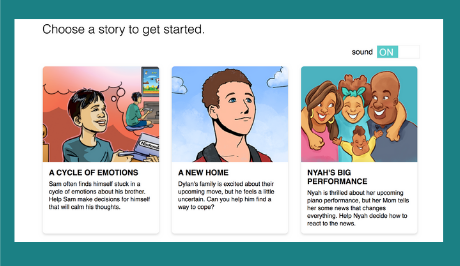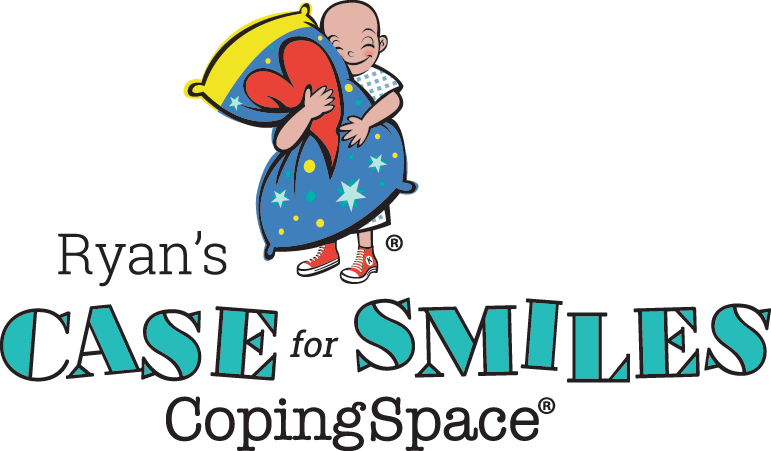BLOG
Resources for Siblings Whose Sibling Has an Illness or Injury
April 29, 2020 (Updated March 8, 2021)
 When a child is diagnosed with a serious illness or injury, a family’s entire world is rocked and the focus, understandably, goes first to taking care of the diagnosed child’s needs. Caregivers jump to action to find the best treatments, gather resources and offer the ill/injured child support. However, the emotional impact of the diagnosis, and subsequent treatment, is felt by the entire family, especially siblings.
When a child is diagnosed with a serious illness or injury, a family’s entire world is rocked and the focus, understandably, goes first to taking care of the diagnosed child’s needs. Caregivers jump to action to find the best treatments, gather resources and offer the ill/injured child support. However, the emotional impact of the diagnosis, and subsequent treatment, is felt by the entire family, especially siblings.
In fact, emerging research shows that nearly 25% of siblings of a hospitalized child will develop symptoms of pediatric traumatic stress (PTS). And 50% of siblings of cancer patients develop symptoms of PTSD, a rate almost equal to mothers (51%), and higher than the patients themselves.
Why?
Siblings who have a brother or sister with an illness or injury are in a uniquely vulnerable position. They are left to straddle two worlds, having to maintain their regular activities and be “normal” outside, while navigating an often-terrifying experience at home. In addition to their own fear and worry, they must cope with drastic changes to their family and routine. They may feel confused, upset, numb, jealous or even guilty.
Unfortunately, parents, and the community that surround them, often are so focused on the ill/injured child that siblings get left behind. Due to limited time and resources, they can feel forgotten or abandoned, with little direction as to how to navigate this experience. Additionally, most support programs focus primarily on the child in treatment. In fact, 48% of hospitals in the U.S. do not offer services to siblings.
However, it’s not all doom and gloom. There are many things you can do to help siblings cope, like including them in their siblings’ care plan, sharing important information with temporary caregivers, or simply taking the time to talk about what they are experiencing. And there are some resources out there, so you don’t have to do it all on your own. Since we know your time is short, we’ve gathered them here. (And even more sibling resources can be found on our Sibling Resource List.)
As always, remember, you are doing the best you can. With healthy relaxation and coping techniques, your family can not only survive, but thrive. We’re here to help. For more information on the sibling experience, and how to support your children, visit our Sibling page.
Sibling Support Resources
Child Life Specialists and Hospital Programs
Just like the Child Life Specialist (CLS) helps your ill/injured child, they can be a great resource for their siblings too. A CLS can explain their brother/sister’s illness and treatments in terms they understand, as well as teach coping skills. They may also prepare activities to address some of the common challenges siblings face, such as separation anxiety and feeling disconnected from family.
A CLS can be a great resource for you as well, providing guidance on what reactions to expect and how to help all of your children adjust. They may also be able to recommend additional sibling specific programming, either at the hospital or through other organizations. These could include support groups, camps, or sponsored activities much like those offered to your ill/injured child.
School Support
 Children over the age of five spend a majority of their time at school. For this reason, teachers, guidance counselors and other school staff can play a big role in how well they adjust and cope.
Children over the age of five spend a majority of their time at school. For this reason, teachers, guidance counselors and other school staff can play a big role in how well they adjust and cope.
It is common for siblings to display some behavior changes as they process the many strange emotions and shifts in their lives. They may begin to miss assignments, withdrawal from friends, or have emotional outbursts. For this reason, it’s important to keep the school informed about what is going on, including any treatment changes or updates in prognosis. This way they can make appropriate accommodations and keep an eye out for abnormal behavior or signs of stress.
In addition to classroom support, guidance counselors and school psychologists may meet with your child to talk about their feelings and ensure they are staying on track. They may also suggest outside resources, such as therapists, support groups and tutors, if there becomes a need. Consider the school your ally and “eyes on the ground”. While a teacher, counselor or coach can never replace a caregiver, they can provide a great deal of support if your attention, understandably, is focused elsewhere.
To start the discussion on how the school can best support your child, download and fill out our School Sibling Support Form.
JustSibs
For siblings between the ages of 11-16, we offer JustSibs.org, an interactive, digital experience to help them navigate and cope with the many challenges and emotions they face. Here they will find a variety of resources, including the choose-your-own adventure style comic, SibXperience, to assist them on their journey from their sibling’s diagnosis through treatment, and beyond.
Covered topics include:
- Adapting to new situations and environments
- Accepting and coping with negative emotions such as jealousy, worry, guilt and anger
- Managing pressure and stress
- Dealing with adversity
- Seeking guidance and support
- Coping with loss and grief
- Balancing “normal life” with a sibling’s medical needs
- Bullying
- And more
SibShops
Sibshops, created by the Sibling Support Project at the University of Washington, are in-person, pedal-to-the-metal events where children can meet other siblings who are ‘in their shoes’, have fun, play games, laugh, and talk about what it is like having a sibling with medical needs. They are designed to help siblings develop healthy coping strategies and feel less alone. Over 400 Sibshops are currently offered in almost every US state, and countries ranging from Argentina to Japan. To find one near you, search the SibShop Directory.
Camps for Siblings
Sometimes it helps siblings to get away from it all. Camp can be a great opportunity to have fun, connect with kids who understand, and receive support and guidance from counselors who are trained to address their special circumstances. In fact, many camps are designed as an intervention with the goal to improve social, emotional and mental health, as well as family communication and functioning. Some camps focus solely on siblings, while others include patients. Patient-focused camps may also offer special weeks for other children to attend.
There are camps that offer programs for all siblings of children with serious illness or injuries, such as the Hole in the Wall Gang Camp, Camp Boggy Creek and Camp Carefree. However, many are diagnosis-specific, so it’s best to talk to your child life specialist or social worker for referrals. Condition-specific websites may also include listings and recommendations.
SuperSibs
SuperSibs is a program by the nonprofit Alex’s Lemonade Stand which provides support to siblings ages 4-18 of childhood cancer patients. While this program is diagnosis-specific, much of the advice and tools are applicable to many circumstances.
In addition to information and resources for caregivers and the community who surrounds them, they offer age-specific webpages full of activities, worksheets and developmentally-appropriate information. These help siblings feel special and understood, while promoting healthy coping techniques. Children can also sign up to participate in a 2-year mailing support program designed to reassure siblings that they are not alone, validate their feelings, and provide the tools needed to cope and thrive.
Related Articles and Resources
About Me Sibling Support Form for Alternative Caregivers
Guide to Supporting Siblings of Children with Illnesses, Injuries and Disabilities
Advice from Siblings of Children with Cancer or Chronic Illnesses
How to Help Your Child (and Siblings) Answer Questions About Their Cancer or Serious Illnesses
